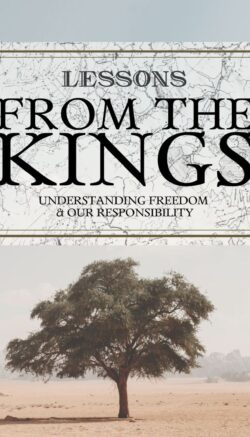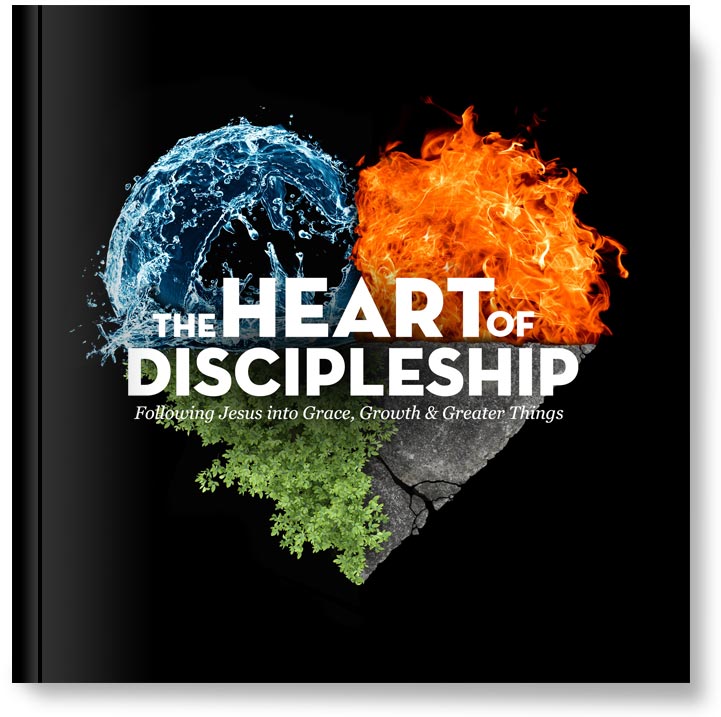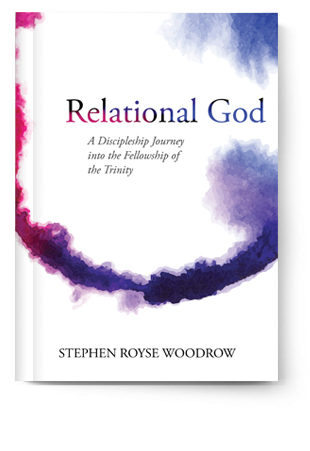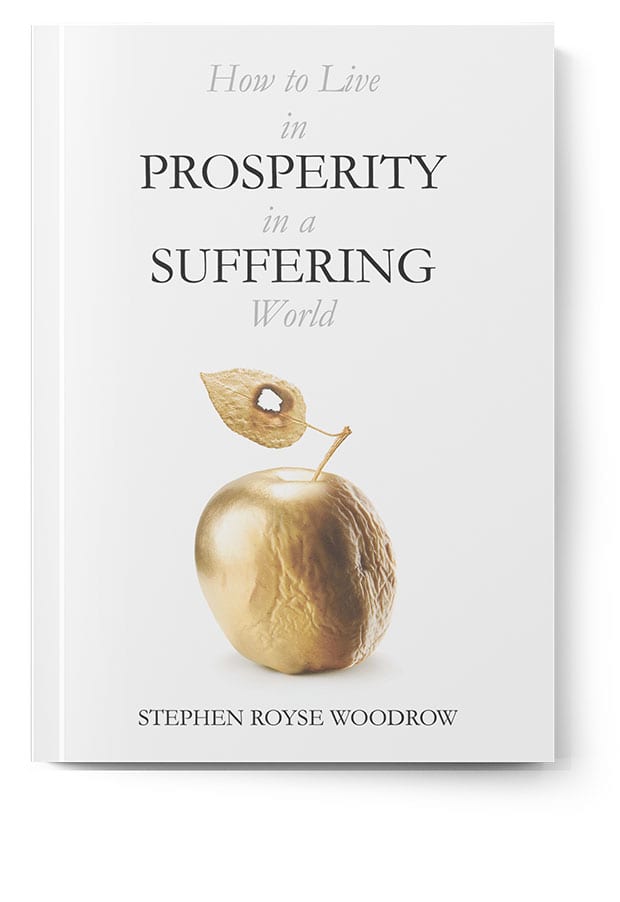 “Your word is a lamp to my feet and a light for my path.” Psalm 119:105
“Your word is a lamp to my feet and a light for my path.” Psalm 119:105
“Apply thyself wholly to the text; apply the text wholly to thyself.” (attributed to Johann Albrecht Bengel 1687-1752)
“This is the one I esteem: he who is humble and contrite in spirit, and trembles at My word.” Isaiah 66:2
For a lot of people, the idea of Bible Study Methods just sounds boring and way too much work. Unfortunately, the state of biblical knowledge among Christians today is very weak. There are a lot of factors, which have led to this crisis within the Church and not just one main issue. Yes, it is a crisis, when Christians are looking to many other sources for direction and wisdom rather than the Bible. It is a real crisis when most Christians today do not have an adequate understanding of the Bible and feel inadequate in reading and studying it. So, the Church needs to rise up and get back to the Bible and equipping people in how to read it, study it and live by it.
Christianity is radically different from every religion and spiritual path in the world for many reasons, one of which is that it is based on and lived by revelation from God Himself. There are two kinds of revelation; general revelation, which is what we can know about God from the creation, and special revelation, which is based upon Jesus’ historical life and the written Word of God the Bible. The Good News of the Gospel of Jesus Christ is that God wants to be in an intimate Father-child relationship with us. He has shown this love by sending His Son to die so that we could live in this relationship with Him. He has spoken by His Holy Spirit resulting in the Bible, which is the main way that He communicates His works, ways and will to His children. Why, if someone has met Jesus as Lord and Savior would they not grow in their hunger and thirst for seeking God in His Word?
Howard and William Hendricks in their book “Living by the Book” have listed seven reasons why people do not read and study the Bible:
- I need something that works
- I don’t know how
- I’m just a layman
- I just don’t have time
- I have my doubts about the Bible
- I can’t seem to make it interesting
- Nobody ever told them what they’d gain by it[i]
The goal of this blog is to encourage people to get started in studying their Bible, no matter what their excuse is. Reading and studying the Bible is both a great privilege and a great responsibility. It is my hope and prayer that people will grow in their knowledge of the great privilege it is to fellowship with God through His written Word and to take seriously their responsibility to learn how to properly read, study and live the Word!
What is Bible Study Methods?
Bible Study Methods can simply be defined as those methods by which someone can properly read, study and apply the Word. The goal of bible study is to engage the heart as well as the mind. This is never to be just an academic exercise and it is never to be just an individual experiential exercise. It is to engage the heart and mind in fellowship with God as one pursues His Word. There are several other terms, which are important for people to know and understand.
Hermeneutics – different processes and principles to interpret the Bible
Exegesis – the process of determining the meaning of a specific text
Exposition – communicating the meaning of a specific text
“Biblical interpretation is undoubtedly one of the chief means of character formation in the church. Character and community are formed by hearing and doing the Word. Indeed, the theological aim of biblical interpretation is to grow in the knowledge of God, as well as in wisdom and righteousness. This is the “telos” of reading the Bible as Scripture (2 Tim 3:16). It follows that readers respond to Scripture as Scripture by following, that is, by applying its meaning according to its intent. The church is a community of readers who acknowledge an infinite debt toward the Scriptures, for what the Bible demands of its readers is nothing less than their wholehearted attention.”[ii]
“I conclude, therefore, that God’s meaning in Scripture is only accessible through the particular language conventions of the various human authors. My belief in inspiration, therefore, is a belief that to grasp what these human authors willed to communicate in their particular historical situation is also to grasp God’s own intention for that situation. Consequently, the most immediate goal of exegesis is to understand what the Biblical authors willed to communicate in their situation. The goal is to see reality through another person’s eyes…It demands that our own ideas take second place…The primary work of the Holy Spirit in exegesis is to abolish the pride and arrogance that keeps us from being open to the Scriptures.”[iii]
“Hermeneutics, as mentioned earlier, is the science and art of interpreting the Bible. Another way to define hermeneutics is this: It is the science (principles) and art (task) by which the meaning of the biblical text is determined. As Terry wrote: Hermeneutics, therefore, is both a science and an art. As a science, it enunciates principles, investigates the laws of thought and language, and classifies its facts and results. As an art, it teaches what applications these principles should have, and establishes their soundness by showing their practical value in the elucidation of the more difficult Scriptures. The hermeneutical art thus cultivates and establishes a valid exegetical procedure.”[iv]
“Exegesis may be defined as the determination of the meaning of the biblical text in its historical and literary contexts. Exposition is the communication of the meaning of the text along with its relevance to present-day hearers. Exegesis is the actual interpretation of the Bible, and hermeneutics consists of the principles by which the meaning is determined.”[v]
Why is Proper Bible Study Methods Critical?
“I have come to think that the way individuals and communities interpret the Bible is arguably the most important barometer of larger intellectual and cultural trends.”[vi]
This is a powerful statement and highlights why developing proper Bible Study Methods is so critical. We can prove this statement simply by taking a brief look at American cultural and intellectual history and see that where there is a low view of the Bible and a lack of interpreting it literally that communities and the country quickly move away from biblical truth as a guide or even a gauge for truth.
“…do readers project themselves onto the text or discover themselves in the text? This “mirror image” raises what I believe to be the most important question for contemporary theories of interpretation, whether of the Bible or of any other book: Is there something in the text that reflects a reality independent of the reader’s interpretive activity, or does the text only reflect the reality of the reader?”[vii]
In our current postmodern culture there is a movement away from traditional interpretation of not just books, but everything. The postmodern way puts a higher commitment on what a person gets out of a book for themselves, how they personally experience the book rather than the author’s original intent. For the Christian, he or she believes there is a reality (God) independent of them who wants to reveal His works, ways and will to them.
“The meaningfulness of the Bible is thus a matter of the Spirit’s leading the church to extend Scripture’s meaning into the present; in this way it displays its contemporary significance. We can state my thesis in the following formula: biblical relevance = revelatory meaning + relative significance. The meaning of Scripture is revelatory and fixed by the canonical contexts; the significance of the Word is relative and open to contemporary contexts. The content of the Bible is revelatory: it informs us of things that we would not have otherwise known. Note that the revelation, like meaning, is a matter of past communicative action (its reception, of course takes place in the present). Significance, on the other hand, is relative to particular contexts and particular readers.”[viii]
To sum up Vanhoozer’s statement above: proper Bible Study Methods must be based upon the foundation that the Bible is God’s revelatory Word to us giving knowledge of things we would not know otherwise. So, in our interpretation we must pursue what was God’s purpose and original meaning. Then, by the Holy Spirit we go through a process of finding the relevance of the text for our life and how to apply it to our lives.
What are the prerequisites for proper Bible Study Methods?
- Admit we are not the ultimate authority and that we need God to reveal truth to us. No person naturally likes the idea of there being an ultimate authority outside ourselves that we will be accountable to.
- We need faith in the Author of the Bible. We need to be in a right relationship with the Author of the Bible through His Son Jesus Christ.
- We need to have a high view of the Bible.
- We need to rely on the Holy Spirit to aid us in understanding the Bible
- We need to learn how to read and study the Bible.
Crossroads Statement of Faith
The Bible – We believe the Bible is the divinely inspired Word of God, wholly truthful and trustworthy, pointing to life in God through Jesus Christ. It is our supreme authority, and sufficient for understanding all matters of faith, doctrine and conduct. (Psalm 19:7-11; Matthew 5:17-18; Luke 24:44; John 5:39; 2 Timothy 3:16-17; Hebrews 4:12-13; 2 Peter 1:20-21)
Therefore, we view Scripture as vitally important and foundational for all we do. It is a resource God has graciously provided us, containing the message to humanity that He Himself put forth. It is inerrant in the original as God inspired men to write its contents, and infallible in the sense that it contains nothing that would lead to error, falsehood, or untruth when soundly interpreted. In an age of Biblical illiteracy in the evangelical church, we must reclaim this precious and absolutely necessary resource.
“My thesis is that in reading we encounter an “other” that calls us to respond…For good readers need to have the right desires, not simply the right devices – the right interpretive virtues, not merely the appropriate hermeneutical techniques. Interpretation is ultimately a matter not only of technology or even of ethics, but rather of religion and theology. Only from the vantage point of Christian faith, perhaps, does language appear not as a system of differences that reflects political power but as a form of divinely instituted communicative action that can be performed responsibly or irresponsibly, to the glory of God or to the undoing of humanity.”[ix]
“The Spirit’s role in bringing about understanding is to witness to what is other than himself (meaning accomplished) and to bring its significance to bear on the reader (meaning applied)…The Spirit’s illumination of our minds is therefore dependent on his prior transformation of our hearts. Sanctification is thus the final aspect of the Spirit’s work in interpretation.”[x]
A message to seekers:
Some of you reading this article maybe are not at a point where you believe the Bible is the Word of God and that Jesus is the Savior of the world. Let me encourage you in your investigation. Let me suggest that you cut some time out each day to read the Bible. I would start with the Gospel of John. I would also suggest that you say a simple prayer before you start reading each day: Jesus, if You are really who You say You are – God please reveal that to me. Next, let me encourage you to spend some time with a Christian and throw all your questions at them and begin discussing the scriptures. We all need to answer the question: Where do you go to find truth and is it reliable?
Basic Bible Study Methods
“Observing what we see in the biblical text, we then should correctly handle it (2 Tim. 2:15). The participle “correctly handling”…translates the Greek word orthotomounta. This combines two words that mean “straight” (ortho) and “cut” (tomeo). One writer explains the meaning of this as follows: Because Paul is a tentmaker, he may have been using an expression that tied in with his trade. When Paul made tents, he used certain patterns. In those days tents were made from the skins of animals in a patchwork sort of design. Every piece would have to be cut and fit together properly. Paul was simply saying, “If one doesn’t cut the pieces right, the whole won’t fit together properly.” It’s the same thing with Scripture. If one doesn’t interpret correctly the different parts, the whole message won’t come through correctly. In Bible study and interpretation the Christian should cut it straight. He should be precise…and accurate.”[xi]
- Always pray before starting, calling on the Holy Spirit to lead you into truth and that God would reveal Himself to you. (John 16:12-15)
- Read the introduction to the book you will be studying. A good study bible will have a short introduction at the beginning of each book of the bible about the author, date, them, culture, etc.
- Observation – take time to read through the text several times meditating on it and writing down things you observe and questions you have about its meaning.
- Interpretation – seek the original meaning of the text
- Application – apply the text to your life and live it
Observation
“In this step, you ask and answer the question, What do I see? The moment you come to the Scriptures you ask, What are the facts? You assume the role of a biblical detective, looking for clues. No detail is trivial. That leads to the second step.”[xii]
Interpretation
“Here you ask and answer the question, What does it mean? Your quest is for meaning. Unfortunately, too much Bible study begins with interpretation, and furthermore, it usually ends there. But I’m going to show you that it does not begin there. Before you understand, you have to learn to see. Nor does it end there, because the third step is…”[xiii]
Application
“Here you ask and answer the question, How does it work? Not, Does it work? People say they’re going to make the Bible “relevant.” But if the Bible is not already relevant, nothing you or I do will help. The Bible is relevant because it is revealed. It’s always a return to reality. And for those who read it and heed it, it changes their lives.”[xiv]
Example of the process:
Let’s say we are going to start a bible study through the book of Galatians. What would the above process look like?
- Prayer: Father, I pray that You will give me insight in understanding the meaning of the book of Galatians. Reveal Yourself to me through Your Word that I might see and know You better. By Your Holy Spirit, change me and let me learn everything that You want me to learn from this book so that I may live more by Your Word.
- In my NIV Study Bible, the introduction to the book of Galatians gives me all kinds of helpful information as I begin my study.
- Read through the entire book of Galatians – maybe even a couple of times to get the big picture of the entire letter by Paul to the churches in Galatia.
- Now, I am going to start with verse one and two and apply the three simple steps of Basic Bible Study Methods to it.
- Observation: “Paul, an apostle – sent not from men nor by man, but by Jesus Christ and God the Father, who raised him from the dead – and all the brothers with me, To the churches in Galatia:” (Galatians 1:1-2) Who is Paul? Why is he writing to the churches in Galatia? Who are the church in Galatia? Does Paul have a past relationship with these churches? Why is he writing to multiple churches – how would they all read the letter? What is an apostle? How was Paul called and where was he sent? How was he sent by Jesus? What is the relationship between Jesus and the Father? Why is Paul concerned with the resurrection in the opening of this letter? Who are the brothers with Paul? I think you get the idea!!! Take time to write your observations down, don’t stop, you will be amazed how much insight and how many questions to come up with.
- Interpretation: Ok, now that you have spent adequate time observing verses one through two it is time to move onto the most important part of this process, interpretation. Now that we have bombarded the text with questions in the first step we continue here to bombard the text with questions, but we move toward answering the questions. In this section we are in search of meaning; what God’s original meaning for inspiring Paul to write this letter to the churches in Galatia was. Interpretation has many elements to it and many processes for determining the meaning of the text, but one does not have to be a bible scholar to do some basic interpretation. It is important to remember that a verse should never be taken out of its context in the chapter, book and whole Bible. So, lets pursue some answers to our questions. What is an apostle and why does Paul claim to be one and why does he start this letter this way? First, can we find an answer to this question in another part of this book without going to another N.T. book? Well, yes – he answers these questions latter on in the first chapter. We could also use our cross-references in the margin of our study bible to go to the book of Acts and read about Paul’s conversion and missionary work to answer the question of who are the churches in Galatia. A key question to answer in the process of interpretation is: What does this scripture tell me about the nature of God? Now, we can go much further and deeper into theological question in our study, but we will need more tools to do that sufficiently like: Bible atlases, Bible commentaries, etc.
- Application: There are two critical questions to answer here in this last part of this process: What does this scripture mean for me? And, What does this scripture mean for others? Here is where we bring it altogether and prayerfully ask God to reveal what He wants us to learn and do in response to His Word. Through our Observation and Interpretation we have learned that Paul was called by God to take the Good News of Jesus Christ to the Gentiles or nations of the world other than the Jews. Well, I am a grateful recipient of Paul’s missionary labors. I have to ask myself – is there anyone out there who knows and passionately follows Jesus because of my labors? Also, Paul is highlighting his authority and God’s revelation to him of His Gospel. From this I can learn that the place I am to go for truth is the Word and it is to be my authority because God has revealed it as His truth and Word.
Final encouragement
- Ok, I think you get the idea. Take these basic Bible Study Methods and finish digging into the book of Galatians on your own or with a friend or mentor.
- Start bringing your Bible to church with you on Sunday that you would increase in your hunger for His Word
- Buy Living by the Book and ask a more seasoned Christian to go through it with you
- Remember God’s Word in Psalm 119:105 and the Good News that your Heavenly Father wants to communicate with you and reveal Himself; through Jesus Christ our Savior and Lord who is called the very logos – Word of God. (John 1)
Further Resources:
Living By the Book, Howard Hendricks and William Hendricks
How to Read a Book, Mortimer Adler and Charles Van Doren
ESV Study Bible
Footnotes:
[i] Howard G. Hendricks and William D. Hendricks, Living by the Book, (Moody Press Chicago 1991) p. 18
[ii] Kevin J. Vanhoozer, Is There a Meaning in This Text? (Zondervan Publising House Grand Rapids Michigan 1998) p. 406.
[iii] John Piper, Biblical Exegesis, Discovering the Original Meaning of Scriptural Texts, (Desiring God Ministries 1999) pp. 12-13.
[iv] Roy B. Zuck, Basic Bible Interpretation, A Practical Guide to Discovering Biblical Truth, (Victor Books 1991) p.19.
[v] Ibid. 20.
[vi] Is There a Meaning in This Text? p.9.
[vii] Ibid. 15.
[viii] Ibid. 423.
[ix] Ibid. 368-369.
[x] Ibid. 413.
[xi] Basic Bible Interpretation, A Practical Guide to Discovering Biblical Truth. pp.12-13.
[xii] Living by the Book, p.35.
[xiii] Ibid. p.35.
[xiv] Ibid. p.35.
1




